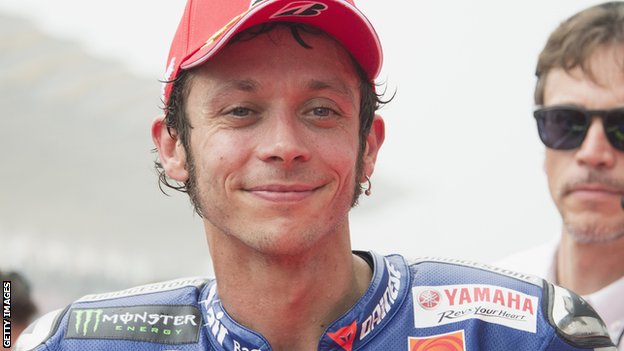Speaking to
The Independent in Brussels where she is
lobbying for more action by the EU, Ensaf Haidar said their three young
children asked her every day when their father was coming home, and she
remained hopeful that the family would be reunited.
But more
international pressure was needed to convince the Saudi royal family
that his sentence of 1,000 lashes and 10 years in prison was simply
unacceptable and must be overturned.
 Raif Badawi and his three children: Najwa, 11, Terad, 10, and Miriam, seven
Raif Badawi and his three children: Najwa, 11, Terad, 10, and Miriam, seven
She said statements from the EU and European governments condemning
Mr Badawi’s sentence helped give him hope. “But in terms of the
effective impact on the case, nothing has been achieved,” she said.
Only
direct appeals from government ministers to Saudi Arabia’s King Salman
bin Abdulaziz Al Saud, the Minister of Interior and the Minister of
Foreign Affairs would get the message across. “I’m not aware of any
government talking officially to the Saudi Arabian authorities and
officially requesting the release of Raif,” said Ms Haidar.
“I
know some of them have been doing it via the embassies, but I don’t
think the embassies are the right venue for this because they are not
aware of the decisions being made back home.”
Pressure should be “at the ministerial level and at the governmental level” she added.
The
Foreign and Commonwealth Office has previously stated that the UK government has repeatedly raised Mr Badawi’s case with Saudi Arabia.
Mr
Badawi was arrested in June 2012 for criticising the country’s clerics
on his liberal blog. He was subjected to the first 50 lashes in a public
square in Jeddah in January, provoking international outcry and
worldwide protests.
In pictures: Raif Badawi release protests
1 of 15
The Saudi government postponed the rest of the lashes citing
his poor health, and the Supreme Court is currently studying his case.
But Ms Haidar said she no had positive news despite her
emotional plea to the Saudi authorities earlier this month to grant him an amnesty and allow him to join his family in Canada, where they have been granted refugee status.
She
now felt that the 31-year-old’s condition in his tiny, overcrowded
prison cell was worsening. “I spoke to Raif six days ago,” she said. “It
was very short phone call... his health is not that great and neither
is his mental state. It is because of the uncertainty about what will
happen.”
Just before her interview with
The Independent
at the Amnesty International offices in Brussels yesterday, Ms Haidar
video-called her three young children in Canada. Her face lit up when
she wished them good morning and she struggled to say goodbye to Najwa,
11, Terad, 10, and Miriam, seven. Ms Haidar’s tireless quest is for the
children to have their father back.
“The situation is difficult –
there is something missing in our lives,” she said. “The kids definitely
miss their father. They need him in simple things, but they also need
him for important things.
“When they go to restaurants, they see
other families with the father and the mother and they feel they are not
in the same situation. When they are sad and crying, they ask for their
father... They ask the same question every day – I’m not exaggerating –
every day they ask ‘when is our father coming back?’ ”
 Ensaf Haidar, wife of jailed Saudi blogger Raif Badawi (Getty)
Ensaf Haidar, wife of jailed Saudi blogger Raif Badawi (Getty)
Despite the lack of positive news, Ms Haidar remains hopeful, drawing
strength from the international campaigns to free her husband, whom she
married in 2002. She said Mr Badawi was also moved by
The Independent’s front-page
campaign for his release. “It meant a lot to him – he was very pleased
and happy when he found out about it,” she said.
She is in Europe
to thank all the people who have come out on the streets to support her
husband. “It gives some hope that something is happening and the world
is not forgetting about him,” she said. But she is also pressing for
more concrete action from the EU.
“I hope that the 28 governments
that form the EU can go there [to Saudi Arabia], then they will
definitely bring Raif back with them,” she said.
David Nichols,
Amnesty International’s senior executive officer for EU foreign policy,
said EU officials and the bloc’s foreign ministers had all pledged to
raise Mr Badawi’s case, and human rights more generally, in their
dealings with the Saudi authorities.
“But there is no evidence of
that taking place,” he said. This apparent silence comes despite
continued use of corporal and capital punishment in Saudi Arabia.
Reports suggested that 88 people had been executed in there this year,
surpassing the total for 2014.
“There are quite clearly many
different interests at play,” said Mr Nichols. “Not just with Saudi
Arabia, but with all countries in the Gulf – concerns such as energy,
such as trade, but also on counter-terror cooperation as well.”
A
spokesperson for the EU’s foreign service said they were closely
monitoring Mr Badawi’s case and had made several formal and informal
approaches to the Saudi authorities. “The EU has since continued to call
on its Saudi partners to suspend the sentence and to consider the
release of Mr Badawi,” the spokesperson said.









































